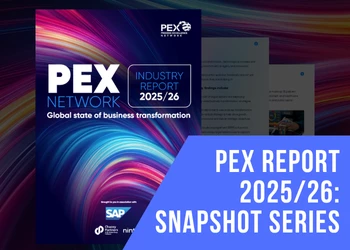5 essential questions to ask yourself when selecting Business Process Management (BPM) software
Add bookmark
See ten software solutions first hand and hear what their clients have to say at BPM Open House from 7 - 11 October 2013.
Business process management (BPM) software can prove a highly useful tool for all sorts of organisations, helping with the design, automation and deployment of various procedures and workflows.
The introduction of such systems is a big step for a company, so it can pay to pose some key questions to ensure you are prepared for the implementation of BPM software. Here are five essential questions you must ask.
Question #1: Is my Organisation Really Ready for Process Automation?
Organisations planning to automate some of their processes as part of a BPM implementation must be sure they are ready for what is likely to be a major change to their operations.
While automation is distinct from process management, it is possible for the systems to be introduced as part of an integrated project.
One possible approach to process automation is extending existing IT systems, although it can prove costly and time-consuming to guarantee the necessary skills either internally or in the marketplace.
Another option is purchasing a specialist tool from an external provider, but there is a possibility this could complicate matters by bringing another IT supplier into the mix.
Question #2: Do I Have a Clear Idea What We're Hoping to Achieve with BPM Software?
Clarifying your specific goals and setting out what you want to achieve by introducing BPM software is critical and surprisingly one that too many organizations forget when they get distracted by the whizz-bang features that promise to revolutionize their business.
Writing in a blog on the BPM Leader website, Scott Cleveland of Impac Systems Engineering recommended looking at your company's requirements as the first stage of selecting process management software.
He pointed out that this will minimise the risk of considering technology that is not appropriate for your business needs, while increasing the chance of finding systems that suit your organisation better than others.
Starting out with a clear list of requirements means you can ask direct questions of potential suppliers and use your own criteria to assess their answers.
Question #3: Have I Got Buy-In from the Business Executives?
The introduction of BPM software, like any significant change to an enterprise and its operations, will only succeed with full support from the business executives.
In an article exploring this topic, Information Management outlined a hypothetical scenario in which an organisation has struggled to implement IT initiatives, despite the fact that the people involved were skilled in their respective areas and the underlying processes were solid.
The IT and business website pointed out that technology projects can often be doomed to failure not because of issues such as process design but because of failure to gain and keep executive buy-in.
This concept extends beyond just gaining funding or approval for a venture and should involve an ongoing commitment from executives to support and guide the initiative.
Question #4: How do I Expect my Needs to Change Over Time?
The ability to evolve and adapt to reflect factors such as market conditions and the corporate environment has always been an important characteristic for businesses.
It has become even more important for companies to be dynamic and flexible in our volatile economic climate, which means your organisation's needs and ambitions could change rapidly.
This should be taken into account when selecting BPM software, as introducing a system that will feel outdated in a couple of years is a waste of time and effort. Consider how your business needs could change in the near future and assess prospective BPM technology options on this basis.
Question #5: Do I Realise this Isn't Just a Software Project?
In a blog on the Successful Workplace website exploring the best ways to evaluate a BPM product, Theo Priestley pointed out that one of the most common mistakes businesses make when embarking on a process management project is seeing it as simply an IT-driven initiative.
As well as focusing on technological concerns, software adopters must consider issues such as the process maturity of the organisation, its capabilities and its understanding of BPM.
Are you planning on selecting a BPM software in the next 18 months? If so join 200 of your peers online from 7 - 11 October 2013 during BPM Open House. Over one week ten suppliers will present their case studies with their clients to give you the insight and knowledge to be able to select the solution that's right for you. Find out more and register for free


























